Attendees
Meet the Faculty
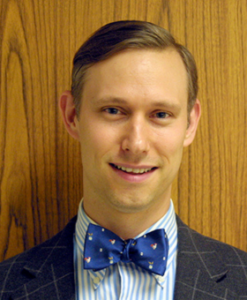
Andrew W. Varga, MD, PhD
Chair, Young Investigators Research Forum 2024
Icahn School of Medicine at Mount Sinai
Dr. Andrew Varga is an Assistant Professor of Medicine at the Mount Sinai Integrative Sleep Center and Division of Pulmonary, Critical Care, and Sleep Medicine at the Icahn School of Medicine at Mount Sinai. Dr. Varga’s research interest is understanding the molecular mechanisms of synaptic plasticity as it pertains to learning and memory, how sleep architecture and sleep disruptions influence risk for Alzheimer’s disease in terms of cognitive outcomes, modulation of clinical biomarkers of neurodegenerative processes, and development of frank neuropathology.
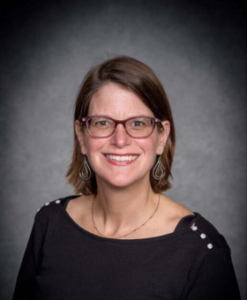
Amy Amara, MD, PhD
University of Colorado
Dr. Amy Amara is a Visiting Professor of Neurology at the University of Colorado. Clinically, she treats sleep disorders such as sleep apnea, narcolepsy, REM sleep behavior disorder, restless leg syndrome, and idiopathic hypersomnia and patients with movement disorders, including Parkinson’s disease and other forms of Parkinsonism. Her research interests include non-pharmacological interventions such as exercise for sleep disorders and cognitive dysfunction in patients with Parkinson’s disease.
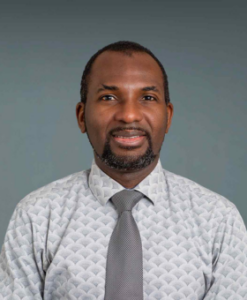
Omonigho Michael Bubu, MD, MPH, PhD
NYU Grossman School of Medicine
Dr. Michael Bubu is an Associate Professor and physician-scientist at NYU Grossman School of Medicine in the Departments of Psychiatry, Population Health, and Neurology, with programmatic research focus on sleep, aging, and Alzheimer’s disease (AD). His research examines how age-related and age-dependent sleep changes and vascular risk impact cognitive decline and AD risk and how they drive AD-related disparities.
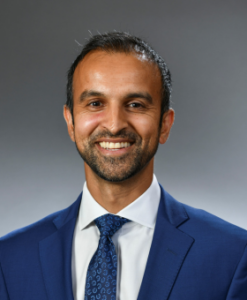
Raj Dedhia, MD, MSCR
University of Pennsylvania
Dr. Raj Dedhia is currently an Associate Professor and Director of the Sleep Surgery & CPAP Alternatives Clinic at the University of Pennsylvania and is board-certified in sleep medicine and otolaryngology. Dr. Dedhia currently receives grant support from the National Institutes of Health and, previously, the American Heart Association, American Academy of Sleep Medicine Foundation, and Triological Society. His research interests include upper airway pathophysiology in sleep-disordered breathing as well as the cardiovascular effects of sleep-disordered breathing.
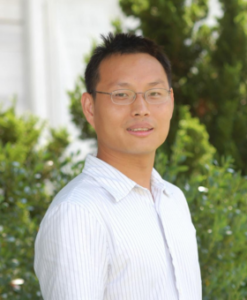
Kun Hu, PhD
Brigham and Women’s Hospital
Dr. Kun Hu is an Associate Professor of Medicine at Harvard Medical School, and Director of Medical Biodynamics Program (MBP) at Brigham & Women’s Hospital. His research is focused on applying and developing nonlinear analytical tools to examine sleep/circadian regulation, behavioral and neurophysiological functions and their alterations with aging and in diseases. The ongoing projects in his MBP group are aimed to understand the physiological impacts of Alzheimer’s disease, and to develop cost-efficient, non-invasive biomarkers for predicting and monitoring the progression of the disease.

Dayna Johnson, PhD
Emory University
Dr. Dayna Johnson is an Assistant Professor in the Department of Epidemiology at Rollins School of Public Health. Her research aims to understand the root causes of sleep health disparities and their impact on chronic diseases by addressing the social and environmental determinants of sleep disorders and insufficient sleep and investigating the influence of modifiable factors such as sleep disorders and disturbances on health outcomes. Her research further explains the social contributors to racial/ethnic and gender disparities in sleep by quantifying the contribution of social, household-level, and neighborhood-level factors with objective and well-validated subjective measures of insufficient sleep.

Yue Leng, PhD
University of California, San Francisco
Dr. Leng is an Associate Professor of Psychiatry at the University of California. An internationally trained epidemiologist, she studies the link between sleep and neurodegeneration in older adults. Her research program focuses on the relationship between napping, sleep, circadian rhythms, and the risk of neurodegenerative diseases. Dr. Leng is also interested in developing behavioral sleep intervention programs in patients with mild cognitive impairment to decrease the risk of Alzheimer’s onset or progression.
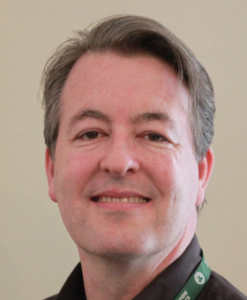
James Timothy McKenna, PhD
Harvard Medical School/VA Boston Healthcare System
Dr. James (Tim) McKenna is an Assistant Professor in the Department of Psychiatry at Harvard Medical School, a Research Health Scientist at the VA Boston Healthcare System, and the Director of the Neuroanatomy Section of the Laboratories of Neuroscience at the VA Boston Healthcare System. His research in the rodent model provides a basis for understanding sleep-wake neural regulation, human sleep disorders, and cognitive dysfunction seen in select psychopathologies.
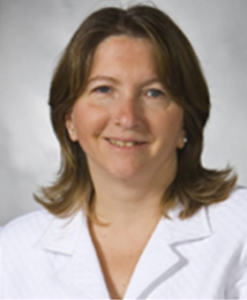
Susan Redline, MD, MPH
Harvard Medical School/Brigham and Women’s Hospital
Dr. Susan Redline is the Farrell Professor of Sleep Medicine at Harvard Medical School, Professor of Epidemiology at Harvard TH Chan School of Public Health, and Director of the Programs in Sleep and Cardiovascular Medicine and Sleep Medicine Epidemiology at Brigham and Women’s Hospital. Dr. Redline’s research includes epidemiological studies and clinical trials designed to elucidate the etiologies of sleep disorders, including the role of genetic and early life developmental factors, understanding the cardiovascular and other health outcomes of sleep disorders, and the role of sleep interventions in improving health.
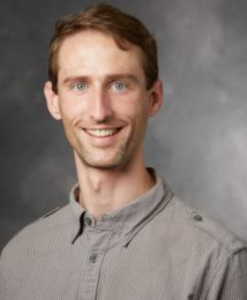
Logan Schneider, MD
Stanford University
Dr. Logan Schneider specializes in the treatment of sleep disorders, which include things like sleep apnea, narcolepsy, insomnia, restless legs syndrome, sleepwalking, and REM sleep behavior disorder. He has practiced Sleep Neurology for more than five years. Dr. Schneider is interested in REM sleep behavior disorder and other parasomnias (such as sleepwalking).
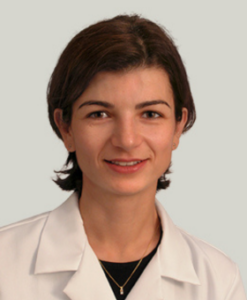
Esra Tasali, MD
University of Chicago
Dr. Esra Tasali is a Professor of Medicine at the University of Chicago and Director of the UChicago Sleep Center. A passionate researcher, her work demonstrates the role sleep plays in controlling energy metabolism, which is the process of generating energy through nutrients in the body, and helps to explain the physical pathways linking insufficient sleep length or quality to metabolic diseases such as diabetes and obesity. Dr. Tasali serves on the National Institutes of Health review panel and is a National Center on Sleep Disorders Research Advisory Board member at the NIH.
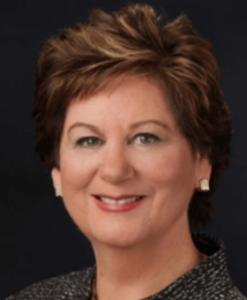
Terri Weaver, PhD, RN
University of Illinois Chicago
Dr. Terri Weaver is Dean Emerita at the University of Illinois Chicago College of Nursing and is internationally recognized for her research on the effect of daytime sleepiness on daily behaviors and assessment of treatment outcomes. Her two notable disease-specific functional status measures, one for chronic pulmonary disorders and the other for sleep disorders, the latter of which has become the gold standard for the evaluation of the impact of treatments for sleep disorders to improve quality of life; it has been translated into 51 languages and used internationally in clinical trials.
Meet the Trainees
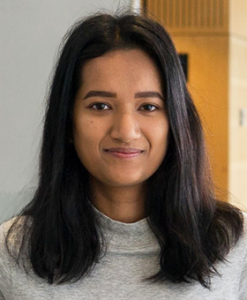
Atqiya Aishah, PhD
Harvard University and Brigham and Women’s Hospital
Dr. Atqiya Aishah is a post-doctoral research fellow at Harvard University and Brigham and Women’s Hospital. Her research identifies and optimizes alternative therapies by utilizing personalized treatment approaches for successful obstructive sleep apnea (OSA) management. She has a Bachelor of Science (1st-class Hon) in Pharmacology and a Ph.D. in Physiology and Pharmacology.
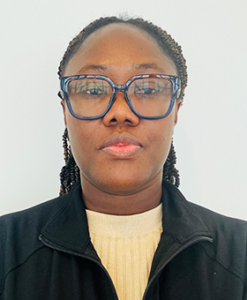
Velarie Y. Ansu, PhD
Feinberg School of Medicine, Northwestern University Chicago
Dr. Velarie Ansu is a T32 postdoctoral fellow at the Feinberg School of Medicine, Northwestern University Chicago. Dr. Ansu received her doctoral degree from the Indiana School of Public Health Bloomington, where she majored in health behavior. Her research examines the role of diet, sleep, and circadian rhythms on cardiometabolic health with an interest in vulnerable populations.
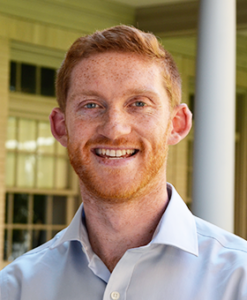
Daniel Callow, PhD
Johns Hopkins University School of Medicine
Dr. Daniel Callow is a postdoctoral research fellow in the Psychiatry and Behavioral Sciences department and the psychiatric neuroimaging core. His research focuses on developing a comprehensive understanding of how lifestyle factors, such as sleep and physical activity, synergistically impact neurocognitive aging and Alzheimer’s Disease progression using advanced neuroimaging approaches.
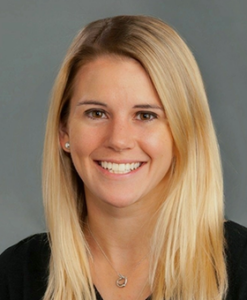
Caitlin M. Carroll, PhD
Wake Forest University
Dr. Caitlin Carroll is a T32 postdoctoral fellow at Wake Forest University under the mentorship of Dr. Ruth Benca. Her current research focuses on sleep as a modifiable risk factor in Alzheimer’s disease. Specifically, she uses neuromodulatory and pharmacological approaches to modulate sleep and identify novel therapeutic targets to slow disease progression.
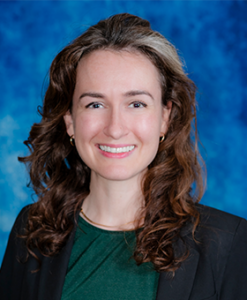
Caroline Doyle, PhD
University of Pittsburgh
Dr. Caroline Doyle received her Ph.D. in Clinical Psychology from the University of Arizona and completed a clinical internship at the VA Palo Alto. She is a postdoctoral scholar in the T32 Cardiovascular Behavioral Medicine Research Program at the University of Pittsburgh. She is interested in the interplay between sleep and trauma exposure and how these synergize to impact cardiovascular health.
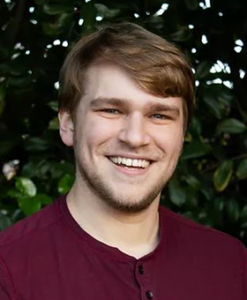
Alexander John Erickson, PhD
Greater Los Angeles VA Geriatric Research Education and Clinical Center
Dr. Alexander J. Erickson earned his Ph.D. in clinical psychology from Palo Alto University. Dr. Erickson has expertise in clinical geropsychology, with specific interests in sleep, pain, and optimal aging. He is currently an advanced fellow within the Greater Los Angeles VA GRECC, researching how pain impacts the benefits of sleep from behavioral insomnia treatments for middle and older adults.
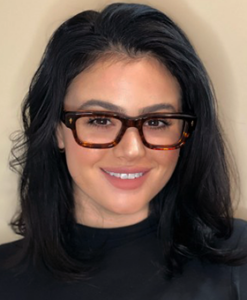
Naomi L. Gaggi, PhD
New York University Grossman School of Medicine
Dr. Naomi Gaggi is a postdoctoral research fellow at New York University Grossman School of Medicine. She is interested in understanding cerebral metabolism in sleep disorders as a risk factor for cognitive decline using magnetic resonance imaging. She has recently been awarded as a T32 fellow under the mentorship of Dr. Ricardo Osorio in collaboration with Mount Sinai’s Integrative Sleep Center.

Joshua Gills, PhD
New York University Langone Health
Dr. Joshua Gills is an exercise physiologist who focuses on Alzheimer’s disease risk reduction and behavioral modifications (sleep, exercise) to improve quality of life and brain health. He is originally from Chicago, Illinois, where he grew up playing multiple sports and loving the outdoors. His interests include working out, outdoor adventures, re-learning the piano, and learning new languages.
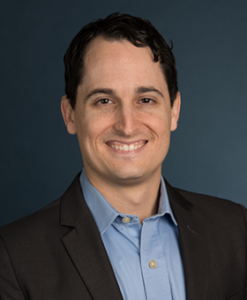
Aaron Glick, DDS
University of Texas Health Science Center at Houston School of Dentistry
Dr. Aaron Glick works in healthcare innovation and is on the University of Texas Health Science Center faculty at Houston School of Dentistry. He is a Diplomate of the American Board of Dental Sleep Medicine and a faculty member of the American Academy of Dental Sleep Medicine Mastery Program. He holds fellowship credentials with the Academy of General Dentistry and the International Congress of Oral Implantology.
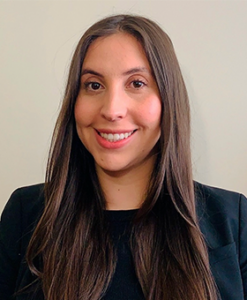
Breanna M. Holloway, PhD
University of California at San Diego
Dr. Breanna Holloway is a postdoctoral fellow at the University of California at San Diego. She received her PhD in Clinical Psychology/Behavioral Medicine from the University of Maryland, Baltimore County. Dr. Holloway’s long-term goal is to become an independent researcher focused on developing and implementing personalized multi-level behavioral sleep interventions for underserved populations.
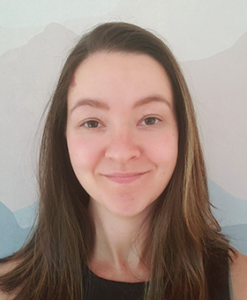
Elizabeth A. Holzhausen, PhD
University of Colorado Boulder
Dr. Elizabeth Holzhausen’s research aims to utilize cutting-edge, single- and multi-omics approaches to understand how the gut microbiome drives health outcomes across the life course. Her current research is focused on understanding the relationship between shift work and the gut microbiome, incorporating multi-omics approaches to understand the transcriptional activity of the gut microbiota.
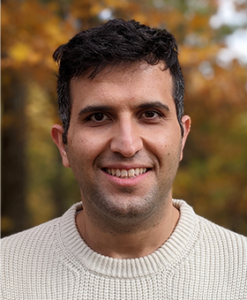
Sina Kianersi, PhD, DVM
Brigham and Women’s Hospital and Harvard Medical School
Dr. Sina Kianersi, with a Ph.D. in Epidemiology from Indiana University Bloomington, serves as a Postdoctoral Research Fellow at Brigham and Women’s Hospital and Harvard Medical School. His research intersects sleep epidemiology and cardiometabolic health, exploring how genetics, chronotypes, circadian rhythms, and lifestyle factors influence the onset of diabetes and cardiovascular disease.
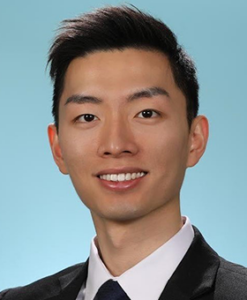
Stephen Lau, PhD
Washington University School of Medicine in St. Louis
Dr. Stephen Lau is an assistant professor at Washington University School of Medicine in St. Louis. His research agenda involves understanding the dynamic relationships between mood, sleep, circadian rest-activity rhythms, and cognition after stroke. He is interested in developing behavioral interventions to address these associations and support continued recovery after stroke.
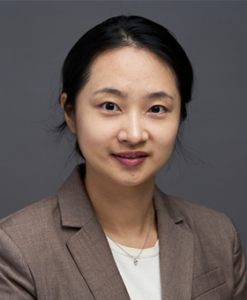
Xiaoyue Liu, PhD, RN
New York University
Dr. Xiaoyue Liu is a nurse scientist interested in sleep and cardiovascular risk. Her research program aims to identify and address sleep health disparities among minority populations.
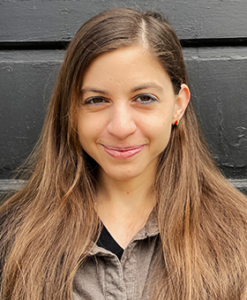
Gina M. Mason, PhD
Bradley Hospital and Warren Alpert Medical School
Dr. Gina Mason is a senior postdoctoral fellow at Bradley Hospital and Warren Alpert Medical School. Dr. Mason’s doctoral work assessed how caregiving impacts infant outcomes, and early postdoctoral work examined how sleep aids child learning and social predictors of child sleep. Her current work probes sleep loss’s impact on a child’s brain and behavior, with plans to study how perinatal sleep loss affects new parents.
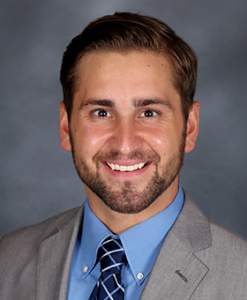
Kendall J. Nichols, MD
Emory University School of Medicine
Dr. Kendall Nichols is an Assistant Professor and Sleep Neurologist at Emory University School of Medicine. He completed his Medical Degree, Neurology Residency and a Translational Research Fellowship at the University of Minnesota, then completed a Sleep Medicine Fellowship at Emory University before joining the faculty at the Emory Sleep Center. His research interests include rapid eye movement (REM) behavior disorder, idiopathic hypersomnia, and the evaluation of circadian rhythms through wearable technology.
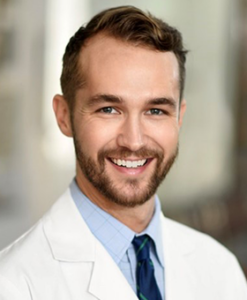
Nathan Nowalk, MD
University of Chicago
Dr. Nathan Nowalk’s goal is to understand the cardiometabolic effects of obstructive sleep apnea and how current therapies can mitigate risk. He leads a prospective study examining cardiometabolic outcomes after hypoglossal nerve stimulation. He is a sleep fellow at the University of Chicago and will finish a Master of Science this spring.
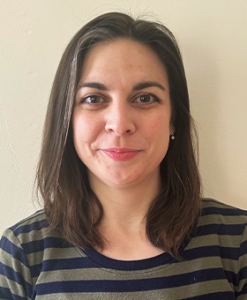
Caitlin Paquet, PhD
Brigham and Women’s Hospital
Dr. Caitlin Paquet is a Sleep and Circadian Disorders fellow at Brigham and Women’s Hospital, focusing on objective measurement, causal models, and epidemiological approaches to studying the relationship between sleep and cognition. Her research interest is disturbed sleep in psychopathology, especially dreaming. She is also passionate about behavioral sleep medicine, hoping to bridge her clinical and academic work.
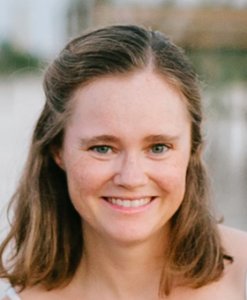
Kaitlin Potts, PhD, MPH
Brigham and Women’s Hospital
Dr. Kaity Potts has a PhD in Epidemiology and a Master of Public Health in Global Community Health Nutrition from Tulane University. Her previous experience involved studying child nutrition in low-income settings. Her current research focuses on the intersection of sleep/circadian health and diet, including how these behaviors influence each other and impact chronic disease outcomes.
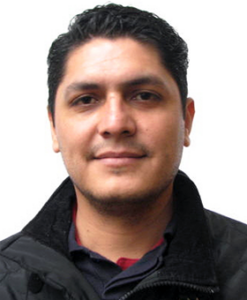
Oscar Daniel Ramirez Plascencia, PhD
Beth Israel Deaconess Medical Center/Harvard Medical School
Dr. Ramirez Plascencia is a Mexican neuroscientist in circuitry and behavioral neuroscience at Beth Israel Deaconess Medical Center/ Harvard Medical School. His work focuses on understanding sleep and circadian regulation, neuronal circuitries from cellular to system level, and interactions of sleep and circadian with other body systems and their implications on physiology and behavior.
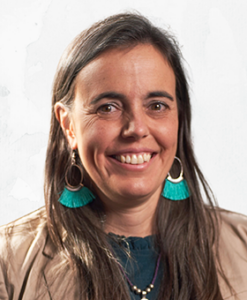
Julia Roncoroni, PhD
University of Denver
Originally from Buenos Aires, Argentina, Dr. Julia Roncoroni has made the United States home since 2007. A University of Florida alumna, she earned her PhD in Counseling Psychology in 2016, followed by a pre-doctoral internship at Harvard Medical School. Since 2016, she’s been a faculty member in Counseling Psychology at the University of Denver, leading the Health Disparities Research Lab.
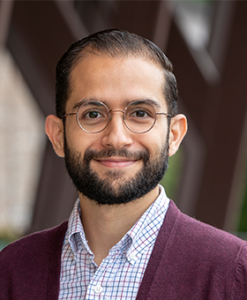
Bruno Saconi, PhD, MA, RN
Geisinger Clinic
Dr. Bruno Saconi is a staff scientist at Geisinger Clinic. He earned his PhD in nursing and a Masters in statistics from the University of Pennsylvania. Dr. Saconi’s research program addresses sleep and chronic pain symptom management in adults. His long-term goal is to address non-pharmacological opportunities to improve chronic pain symptoms (or outcomes) by treating co-occurring sleep disorders.
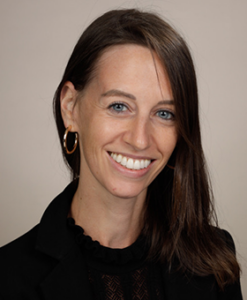
Linda Sangalli, DDS, MS, PhD
Midwestern University
Dr. Linda Sangalli is a dentist specializing in Orthodontics and has a PhD in Technology for Health (Italy). After working as a Specialist Orthodontist in private practices, Dr. Sangalli achieved a Master’s in Orofacial Pain at the University of Kentucky. She is an Assistant Professor at Midwestern University, College of Dental Medicine in Illinois.
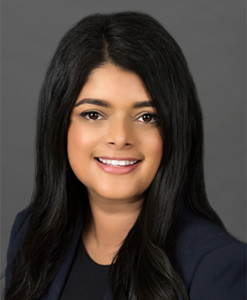
Aarti Sathyanarayana, PhD
Northeastern University
Dr. Aarti Sathyanarayana is an Assistant Professor at Northeastern University. She directs the SATH Lab (Signal Processing & Artificial Intelligence for Time variant Health data), which strives to translate digital health data collected from smartphones, wearables, and biomedical devices into actionable insights for sleep medicine, its comorbidities, and personal wellness.
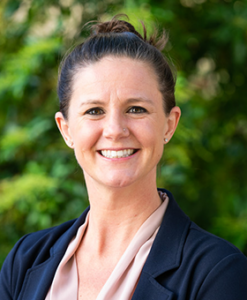
Brooke Shafer, PhD
Oregon Health & Science University
Dr. Brooke Shafer is a first-year post-doctoral researcher at Oregon Health & Science University, working under the mentorship of Dr. Andrew McHill. Her research focuses on how the mistiming of behaviors (i.e., sleeping, eating) with our internal biological timing system may promote the risk of cardiovascular disease.
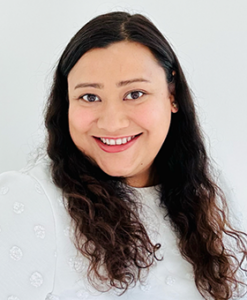
Rupsha Singh, PhD
National Institute on Aging
Dr. Rupsha Singh is a postdoctoral fellow at the National Institute on Aging. She completed her PhD in Clinical Psychology from the University of Maryland, Baltimore County, and a Behavioral Sleep Medicine pre-doctoral internship from Penn State Health Hershey Medical Center. Her current research focuses on identifying psychosocial factors contributing to sleep health disparities.

Christine So, PhD
Philadelphia VA Medical Center
Dr. Christine So is a second-year postdoctoral fellow at the Philadelphia VAMC working with Drs. Phil Gehrman & Katherine Miller. Her research focuses on mechanisms underlying trauma-related sleep symptoms to identify prevention/intervention targets. Clinically, she works with Veterans with sleep and circadian rhythm problems. Dr. So holds a Ph.D. in clinical psychology from the University of Houston.
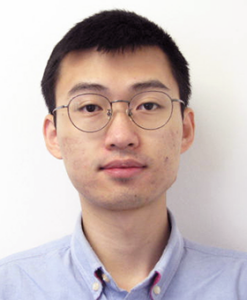
Haoqi Sun, PhD
Beth Israel Deaconess Medical Center
Dr. Haoqi Sun is an Instructor of Neurology at Beth Israel Deaconess Medical Center, mentored by Dr. M. Brandon Westover and Dr. Robert J. Thomas. He is trained in artificial intelligence (AI) and sleep medicine. He served on the Artificial Intelligence in Sleep Medicine Committee at the American Academy of Sleep Medicine. He has worked on sleep-based brain age, which won the Sleep Research Society Outstanding Early Investigator Award.

Tue Te, MD, MBMI
University of California at Los Angeles
Dr. Tue Te is a sleep medicine physician trained in academic sleep medicine and biomedical research. She is in a Biomedical Informatics Doctoral/Specialty Training and Advanced Research (STAR) program at UCLA. She is interested in discovering novel phenotypes by applying machine learning to large-scale data that would enable the personalization of treatments and, ultimately, reduce morbidity and mortality.
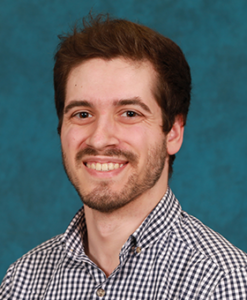
Mark Thomas, PhD
VA Pittsburgh Healthcare System
Dr. Mark Thomas is a second-year Mental Illness Research, Education, and Clinical Center (MIRECC) postdoctoral fellow at VA Pittsburgh Healthcare System. He completed his Ph.D. in clinical psychology at the University of Pittsburgh and his clinical internship at the Ohio State University Wexner Medical Center. His research and clinical interests involve improving sleep health and mental health outcomes in individuals with obstructive sleep apnea.

Youmeng Wang, MD
Brigham and Women’s Hospital
Dr. Youmeng Wang’s postdoctoral research at Harvard’s Brigham and Women’s Hospital examines post-surgery cognitive and behavioral changes in children with sleep apnea and urban kids’ sleep affected by allergens, building on doctoral work in sleep apnea and heart failure treatments.
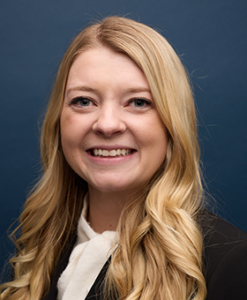
Megan Wenzell, PhD, RN
Case Western Reserve University
Dr. Megan Alder Wenzell is an Assistant Professor at Case Western Reserve University with experience in descriptive sleep behavioral studies and insomnia interventions for autistic children, including actigraphy data. She completed her postdoctoral fellowship at the Marcus Autism Center. Her long-term goal is to examine insomnia in autistic children using a multidimensional lens to identify therapeutic targets.
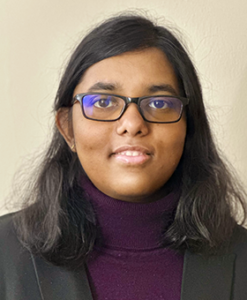
Sajila Dimagi Wickramaratne, PhD
Icahn School of Medicine at Mount Sinai
Dr. Sajila Wickramaratne is a Postdoctoral Fellow from the Icahn School of Medicine at Mount Sinai, New York. She obtained her Ph.D. in Electrical and Computer Engineering from the University of New Hampshire. Her background is in Biomedical Engineering and Artificial Intelligence. Her current research focuses on applying machine learning methods to address issues in sleep medicine.

Jing Zhang, PhD
Massachusetts General Hospital
Dr. Jing Zhang earned her Ph.D. in cognitive science from the University of California, Irvine. Her doctoral work focused on the impact of sleep spindles and slow oscillations on various memory domains. Now, as a postdoctoral researcher, she’s expanding this work to explore the intersection of sleep and memory in individuals with schizophrenia.
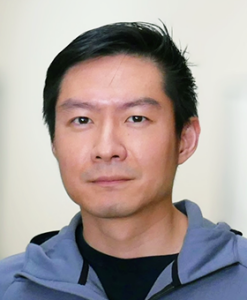
Charlie Zhong, PhD, MPH
American Cancer Society
Dr. Charlie Zhong received his Ph.D. in Epidemiology from the University of Southern California. His background is in utilizing geographic information systems to study cancer and sleep. He is now a Principal Scientist at the American Cancer Society, working with their Cancer Prevention Study cohorts with a focus on understanding what aspects of sleep and circadian rhythm impact cancer risk.

